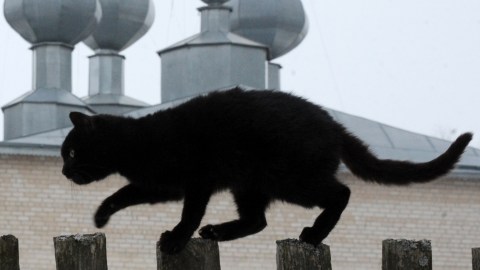What Is the Most Popular Superstition in America?

Living in the most technologically and scientifically-minded society to date, many of us, reasonable people, still can’t help but succumb to superstitions in our daily lives. That’s just how our brains help us cope. This would be a strange world indeed if black cats really gained control over your destiny simply by crossing the road in front of you. Still, many would try to find a way around if a black cat showed up in their path. Just in case.
To understand better what superstitions still hold sway over the minds of Americans, researchers surveyed over 2,000 people and found that about 40% would consider themselves “superstitious”.
The top superstition? Knocking on wood. Something harder and harder to do in a modern home. Apparently, 32.3% do this.
If you are curious, this practice to avoid bad luck has its root in pagan traditions, where various cultures believed helpful spirits resided inside certain trees. So if you touched that tree, you’d be asking the spirit for protection.

Credit: Casino.org
Other top superstitions involved wishing on stars, crossing fingers for luck and seeking out four-leaf clovers. Interestingly, some of the bad omens relate to numerology, with 3, 666, and 13 being particularly worrisome.
Black cats are a potential hazard to 9.2% of the surveyed group, but we know the real number is much higher.
If you look at the results from a gender-based perspective, men come out more for believing in “beginner’s luck” while women are more likely to wish on a star. Both groups knock on wood with nearly the same conviction.

Credit: Casino.org
Breaking it down by age groups, millennials are more likely to believe in luck, while generation Xers apparently are the most superstitious, with 10 different superstitions scoring high in the results. To the baby boomers, number 13 is of distinct concern.

Credit: Casino.org
As far as which part of the country is most superstitious, the honor goes to the South. Still, it’s easy to see that, overall, the numbers between the regions are fairly similar, with the west being least populated by people worried about throwing salt over their left shoulders.

Credit: Casino.org
The study was conducted by Casino.org.
Cover photo: A four leaf clover, a rare find and traditionally thought to bring good luck. (Photo by Express/Express/Getty Images)





